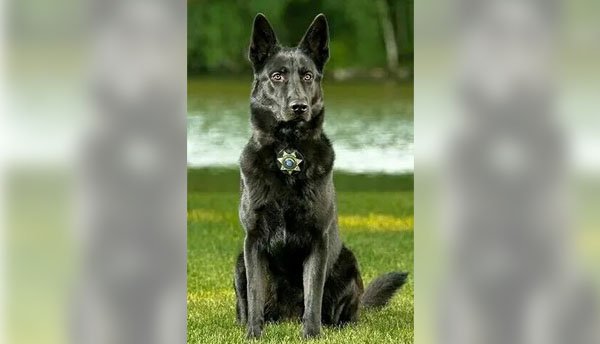G.S.D as a police dog
German shepherd is still top dog for police work, written in the UK
By John Steele, Crime Correspondent 12:00AM GMT 13 Feb 2001
A GROWING number of voices have questioned the quality of German shepherds as police dogs.
Some forces have flirted with dobermanns and rottweilers and handlers have travelled abroad to examine breeds including the Belgium Malinois, an adaptable shepherd in use on the Continent.
The case against German shepherds states that too many are now bred as pets and show dogs and they have lost the fearlessness needed for police work. The criticism was most recently articulated in Police Review magazine. Pc Phil Tyson, of West Yorks, said the influence of dog shows “meant German shepherds have had the suspicion and boldness bred out of them”.
He added: “Dog shows don’t look for aggression but for dogs which look nice and which are subdued. But working dogs need to be alert.” Insp Howard Norman, of Hampshire Police dog section, said: “Breeders have made an effort to breed out some of the dogs’ faults, but in doing so have lost some of the characteristics that made the dogs what they were.”
There are about 18,000 registered German shepherds in Britain. Police forces in England and Wales have about 2,500 dogs, the bulk of them German shepherds, on general duty. The Association of Chief Police Officers (ACPO) has suggested national seminars of experts to consider the extent of any problem with German shepherds, and also to look at possible regional breeding centres.
ACPO says it thinks there is a “potential”, rather than a real, problem. The unsuitability of show dogs is widely accepted. However, a leading canine geneticist, who has advised Northumbria Police, believes police have only themselves to blame if they cannot find acceptable German shepherds.
Dr Malcolm Willis, who lectures at Newcastle University, said some forces were “trying to get dogs on the cheap” – relying on gifts from the public of often unsuitable animals and not investing in their own breeding programmes.
Dr Willis suggested that police required athletic dogs capable of being trained to obey their handlers and only display aggression when instructed. It was wrong, he said, to characterise the problem for police as more cowardly animals.
“The problem is in the police hands. They are saying German shepherds are getting nervous. But I have been in German shepherds since 1953. When I started, if you looked at 100 dogs you would probably find 20 which were nervous. Now you would look hard to find two.
“Police have to realise that 95 per cent of the dogs they are given as police dogs fail because there was something wrong with them when they were given.” Despite experiments with other breeds, he added, the German shepherd remained the best police dog in the world.
Chief Insp Graham Morris, of the Metropolitan Police’s dog section, which breeds German shepherds for use in London and elsewhere, said: “We are picking dogs that have a good temperament and don’t go round biting the public but prove to be very good at their job.
“It’s got to be a bold dog. It’s got to be quite courageous, not timid. But the Met is not looking for dogs to bite people.” Despite a public perception that German shepherds are essentially tools for maintaining public order, Mr Morris said this was not their main skill.
At the top end of skills, he said, was firearms support. “Most shootings occur in buildings, where the police or the suspect are surprised and it all goes wrong. A firearms dog is trained to find someone in a building and report to its handler.
That saves people being shot. We are going to put a camera on its head, so outside people can see it. Dogs also find dead bodies for the CID. Like a Pc, in certain circumstances they will have the courage to use force. But that’s not their main skill. That is to find.
“If we can find property from burglars, or the knife the robber has dropped, or a coat that was dropped, and can get the DNA from that, then they make a valued contribution to fighting crime. Their success rate is quite amazing.”
He added: “We will look at everything else, but we have got no plans to move away from German shepherds.” The Met spends up to £3,000 a year on each of around 200 working dogs.

